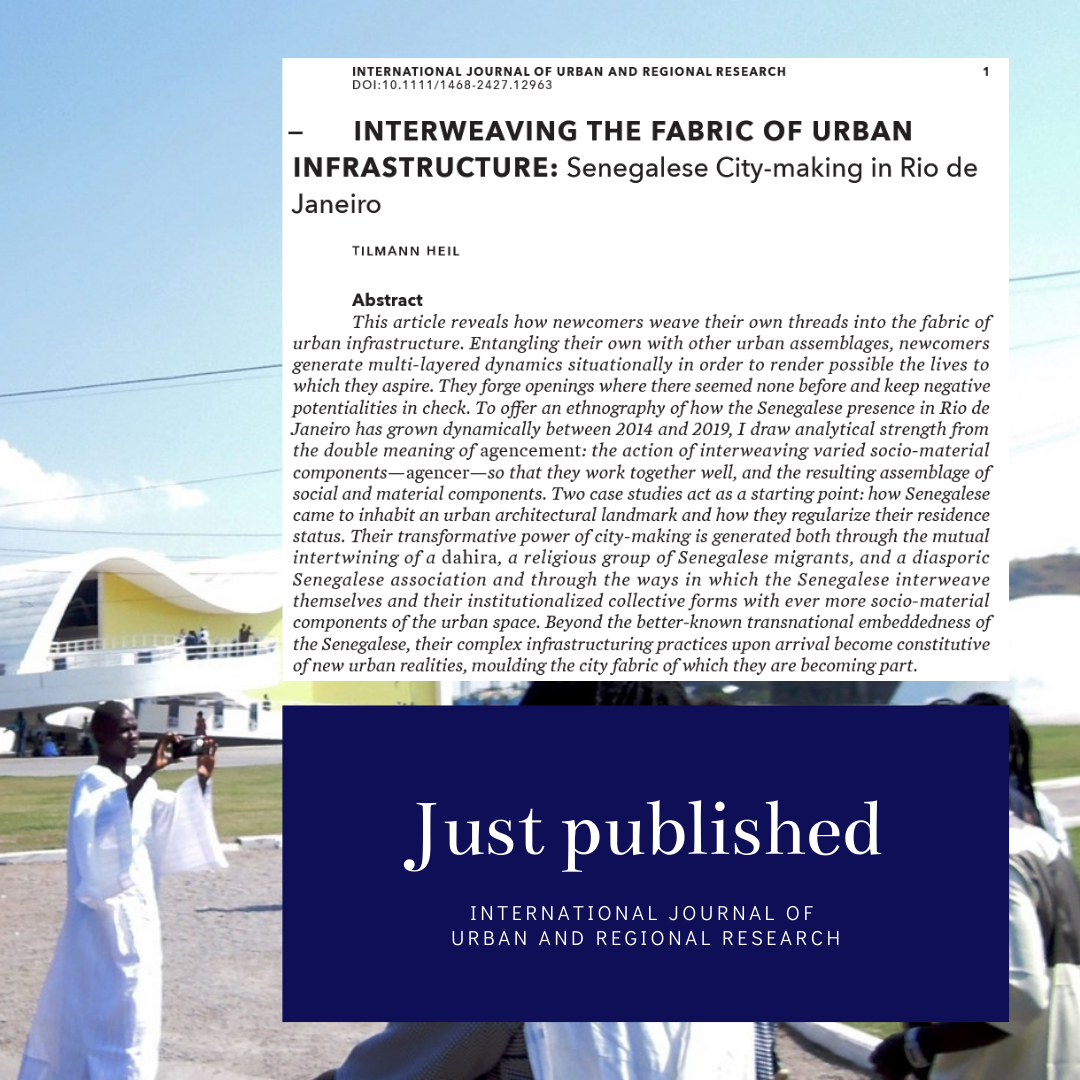Done. The German academic world is sometimes particular, despite having some resemblance in other parts of the world, for example, São Paulo. After your doctorate, you continue on precarious contracts - other than the few who pass directly onto Junior professorships - and start preparing a second project. It needs to be distinct from your doctoral research. In Anthropology, this refers to both regional and thematic/conceptual expertise.
While in the midst of writing my second book, my colleagues at Cologne University convinced me last year that this further seal of academic excellence and loyalty to a peer group would not do harm. I embarked on submitting 6 peer-reviewed, article-length text that show an internal coherence, wrote a long introduction on Assembling Social Hierarchies, submitted all to the faculty and four reviewers, received positive verdicts. The faculty followed the recommendation of the reviewers and invited me to submit yet another three different topics for my oral habilitation colloquium, open to the faculty and with the necessary participation of 24 full and associate professors. I had the pleasure to present a new research idea on Urban wood/s to sixty interested and enthusiastic colleagues and students. If the faculty next Wednesday follows the unanimous recommendation to also accept that oral habilitation exam, I will have reached what they call the end of the ladder. Done. An inaugural lecture will follow, and hopefully soon the second book as well. Cfp: Panel "Latin America under the Conviviality-Inequality lens" - Deadline 30 November 202124/9/2021
I am glad to organize this interdisciplinary panel with Clara Ruvituso, Ramiro Segura and Astrid Ulloa from Mecila! Consider submitting your work:
Interdisciplinary Panel 07.09 Latin America under the Conviviality-Inequality lens: Current scenarios and possible futures of living together at the Congreso Internacional del Consejo Europeo de Investigaciones Sociales de América Latina (CEISAL) 13-15 June 2022 in Helskinki, Finland ABSTRACT This panel invites contributions that discuss the current scenarios and possible futures in Latin America under the lens of Conviviality-Inequality. In the last years, Conviviality-Inequality studies developed a focus on Latin America, initiating productive dialogue with Latin American social thought, otherwise often displaced to the margins of global knowledge circulation, where it dwells together with postcolonial studies, the critiques of anthropocentrism, and further critical theories of the other "souths" and "norths". The panel aims to go beyond established conceptions of coloniality and modernity, globality and locality, or parallel notions that present all too simple binaries, juxtapositions, and closures. Multiple and intersecting social, political, and material regimes have shaped Latin American territorialities. They have emerged from the confluence and entanglement of colonial and imperialist, as well as modern and developmentalist globalizing forces and their contestations. These regimes shape time-spaces of different scales, from the global to the local, from the event to long durée. The paired concept Conviviality-Inequality captures the co-existence of ever-changing configurations of these multiple processes and their spatializations. While conviviality theoretically encompasses the spectrum from conflict to peace, its conceptual marriage to inequality hones in on the hierarchical, unequal historical condition, in Latin America and beyond. Current debates of zumbification, aquilombar, buen vivir, and ways of rethinking creolization, mestizaje, négritude, imperialism, and ancestral knowledge explore the convivial configurations of the Latin American pasts, presents, and futures. They take the interdependent inequalities and differences into account (among others, race, ethnicity, gender, religion, citizenship, human/more-than-human) as well as the countless forms of resistance and contestation that have arisen in the region. Attention to such configurations brings onto-epistemological openings to the forefront: spatialities, temporalities, colonialities, and modernities are all constituted in the plural. Within the rapidly changing global scenario of both global social movements, such as “Vidas negras importam”, “Estallido social”, “Fridays for Future”, and the Covid-19 pandemic, Conviviality-Inequality opens a novel and productive opportunity for analysis given its focus on specific tensions at local and global levels, between inequality and differences, and their contestations. Papers should empirically explore concrete examples of Conviviality-Inequality, making use of the full spectrum of onto-epistemological, material, and symbolic plurality. Beyond the debates addressed so far, some such examples: the re-emergence of State power from urban centers to national borders, from the intimate community to the geopolitical scale; the salience of less-regarded categories of difference, such as age, dis/ability, or legal status in interaction that unfold in the configuration of race, class, and gender; the reconfiguring and diverse contestations in relation to the body, nature, or the non-human; the tensions, inequalities, and opportunities of the digital transformation and social media in knowledge circulation. Based on empirical reflections of the current conjuncture, we would like to discuss what kinds of convivial scenarios and futures become possible and conceivable in Latin America when the pluralities, synergies, tensions, interconnections, and contradictions are fully explored to address both continuities and change. Practical Information
It's a long journey that comes to an end as an #openaccess article in IJURR (doi.org/10.1111/1468-2427.12963).
I was fascinated how newcomers make the city according to their tastes, needs, visions, and projects weaving threads together that have not been connected before. I focus on the action of interweaving - or agencer - in which they connect themselves and their collective forms of organization to religious, social, political and material elements of urban space. First and foremost, I thank my interlocutors with whom I learned about the multiple Rios that emerge from complex lives lived in the multiple tensions in place. The article sheds light onto the process of arrival that is at the basis of my project Valued Difference that I have developed over the last years in Rio de Janeiro, on which you can read here.
The Centre is a collaboration between seven research institutions in four countries and two continents
|


 RSS Feed
RSS Feed